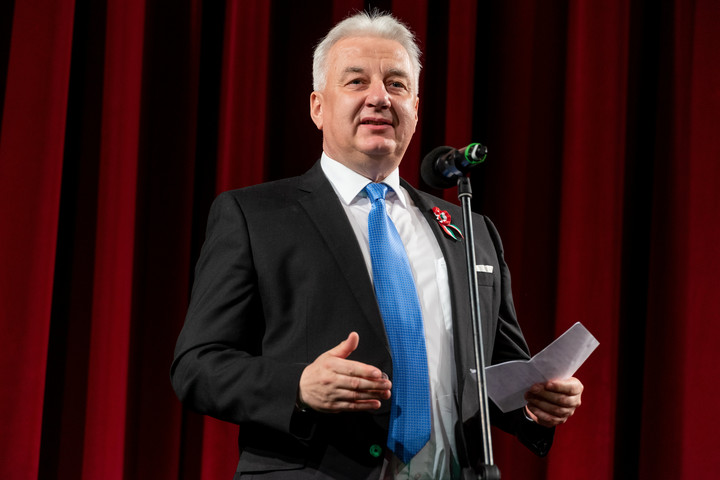Hungary has witnessed a Jewish renaissance, and Jewish life is flourishing in Hungary, the country’s Deputy Prime Minister Zsolt Semjén said on Monday at the board of directors meeting of the World Jewish Congress in Budapest.
In his opening address, Semjén emphasized that the Hungarian government had provided €100 million in support of Jewish denominations since 2010. The government has declared zero tolerance for antisemitism and is acting against the double standards that often plague Israel, he added.
“Unlike other countries in Europe, Hungarian Jews lives in complete security, their institutions are functioning, and physical atrocities do not affect anyone in Hungary because of their Jewish identity,” Semjén said.
He pointed out that although in the census only tens of thousands of Hungarian citizens identified themselves as Jews, hundreds of thousands of them are still connected to Judaism, with many rediscovering their family roots and finding their way back to their Jewish identity.
“In Hungary, all three Jewish historical congregations are recognized with the same legal status as the Catholic and Reformed Churches, and Reform Jewry is connected to this through the Association of Jewish Communities in Hungary,” Semjén told the meeting. “Hundreds of associations and foundations are custodians of Jewish culture and Jewish life,” he added.
According to the deputy prime minister, Jewish hospitals, schools, and social homes are flourishing, and the Hungarian state is fully committed to maintaining them. He added that a series of agreements with Jewish denominations in 2002 guarantees the role of Jewish institutions in all walks of life; it also returns properties previously taken under the communist regime to Mazsihisz, pays what they were worth at the time of nationalization, or pays for them via a perpetual annuity, which at today’s prices amounts to some €5 million a year.
As he said, the relations between the Jews and the Hungarians date back more than 1,200 years, going back to the Khazar Empire (6th century A.D.), and in Hungary, the role of the Jews became decisive, creating a wonderful culture. He added that this was broken first by Nazism and then by communism.
“The anti-Israel, atheist communist regime persecuted Judaism with varying intensity and in a different way. In Hungary today, the Holocaust is part of the curriculum in schools, it has a day of remembrance, and many monuments and museums are associated with it, paying tribute to the victims,” Semjén said.






